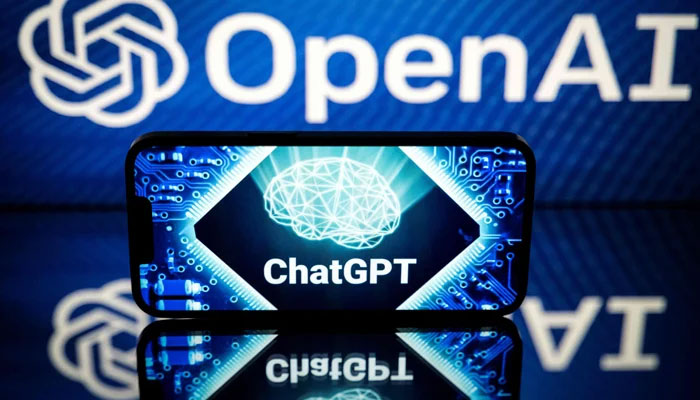OpenAI on track to hit $2 billion revenue milestone as growth rockets
London/San Francisco: OpenAI’s revenues have surpassed $2 billion on an annualised basis, as the runaway success of its flagship artificial intelligence product ChatGPT puts it among the fastest-growing technology companies in history.
The San Francisco-based start-up’s yearly run rate — a measure of the previous month’s revenue multiplied by 12 — hit the $2 billion milestone in December 2023, according to two people with knowledge of its finances.
These people added that the Microsoft-backed company believes it can more than double this figure in 2025, on the back of strong interest from business customers seeking to use OpenAI’s technology to adopt generative AI tools in the workplace.
The extraordinary growth is set to put OpenAI among a handful of Silicon Valley companies — including Google and Meta — to have posted revenues of $1 billion within a decade of being founded.
OpenAI was launched as a not-for-profit AI research lab in 2015 but has become a commercial behemoth since it created a business arm in 2020. Its annualised revenue was $1.3bn as recently as October last year, according to The Information, a technology publication, but the pace of sales growth has continued to accelerate.
Despite ructions at the company in November, when chief executive Sam Altman was ousted by OpenAI’s board only to be reinstated days later, the group continues to capitalise on the AI boom it kicked off with the launch of ChatGPT in November 2022.
According to Altman, 92 percent of Fortune 500 companies were using OpenAI products, including ChatGPT and its underlying AI model GPT-4, as of November last year, while the chatbot has 100mn weekly users.
Consumer and business interest in generative AI — systems that can generate code, text, images, video and analysing information from user prompts — has rocketed.
A number of competitors, including big tech rivals such as Google and Meta, and start-ups including Anthropic, Mistral and Cohere, are also beginning to commercialise their AI products. On Thursday, Google announced its new AI system Gemini, which users can access through a premium subscription of $20 a month.
Altman has said OpenAI remains lossmaking because of the vast costs of building and running its models. The spending is expected to continue to outpace revenue growth as it develops more sophisticated models. The company is likely to need to raise tens of billions more in order to meet those costs. “Training expenses are just huge, but that’s intentional,” Altman told the Financial Times in November.
So far, its biggest backer Microsoft has committed up to $13bn to OpenAI, as the companies forged an alliance that has put them at the forefront of the AI frenzy.
OpenAI’s models also underpin Microsoft’s AI Copilot, an AI assistant for enterprise users of Microsoft 365, its suite of productivity software including Office, Excel and PowerPoint, which has been rolling out over the past three months.
The start-up has a profit-sharing agreement with Microsoft on any sales made through its investor. While Microsoft has not disclosed sales or user figures for Copilot, the company said in October that 18,000 customers were buying OpenAI software through its Azure platform.
In recent months, employees at the ChatGPT-maker participated in a stock sale that gave OpenAI a valuation of $86bn, roughly three times what it was worth last April.
Altman is also exploring ways to boost the supply of semiconductors, a vital commodity for AI companies seeking to build the latest models to bring down OpenAI’s costs. He posted on X this week: “Building massive-scale ai infrastructure, and a resilient supply chain, is crucial to economic competitiveness. OpenAI will try to help!”
-
 Shawn Levy Recalls Learning Key Comedy Tactic In 'The Pink Panther'
Shawn Levy Recalls Learning Key Comedy Tactic In 'The Pink Panther' -
 King Charles Fears More Trouble As Monarchy Faces Growing Pressure
King Charles Fears More Trouble As Monarchy Faces Growing Pressure -
 Inside Channing Tatum's Red Carpet Return After Shoulder Surgery
Inside Channing Tatum's Red Carpet Return After Shoulder Surgery -
 Ryan Coogler Brands 'When Harry Met Sally' His Most Favourite Rom Com While Discussing Love For Verstality
Ryan Coogler Brands 'When Harry Met Sally' His Most Favourite Rom Com While Discussing Love For Verstality -
 Sarah Pidgeon Explains Key To Portraying Carolyn Bessette Kennedy
Sarah Pidgeon Explains Key To Portraying Carolyn Bessette Kennedy -
 Justin Bieber Rocked The World With Bold Move 15 Years Ago
Justin Bieber Rocked The World With Bold Move 15 Years Ago -
 Sam Levinson Wins Hearts With Huge Donation To Eric Dane GoFundMe
Sam Levinson Wins Hearts With Huge Donation To Eric Dane GoFundMe -
 Kate Middleton Steps Out First Time Since Andrew Mountbatten-Windsor's Arrest
Kate Middleton Steps Out First Time Since Andrew Mountbatten-Windsor's Arrest -
 Inside Nicole 'Snooki' Polizzi's 'private' Marriage With Husband Jionni LaValle Amid Health Scare
Inside Nicole 'Snooki' Polizzi's 'private' Marriage With Husband Jionni LaValle Amid Health Scare -
 Germany’s Ruling Coalition Backs Social Media Ban For Children Under 14
Germany’s Ruling Coalition Backs Social Media Ban For Children Under 14 -
 Meghan Markle Shuts Down Harry’s Hopes Of Reconnecting With ‘disgraced’ Uncle
Meghan Markle Shuts Down Harry’s Hopes Of Reconnecting With ‘disgraced’ Uncle -
 Liza Minnelli Alleges She Was Ordered To Use Wheelchair At 2022 Academy Awards
Liza Minnelli Alleges She Was Ordered To Use Wheelchair At 2022 Academy Awards -
 Quinton Aaron Reveals Why He Does Not Want To Speak To Wife Margarita Ever Again
Quinton Aaron Reveals Why He Does Not Want To Speak To Wife Margarita Ever Again -
 Prince William And Kate's Photos With Andrew Used In New Campaign Against Royals
Prince William And Kate's Photos With Andrew Used In New Campaign Against Royals -
 Touching Eric Dane Moment With Daughter Emerges After Viral Final Words
Touching Eric Dane Moment With Daughter Emerges After Viral Final Words -
 Kate Middleton Quietly Backs Princess Beatrice, Eugenie As Andrew Scandal Intensifies
Kate Middleton Quietly Backs Princess Beatrice, Eugenie As Andrew Scandal Intensifies




